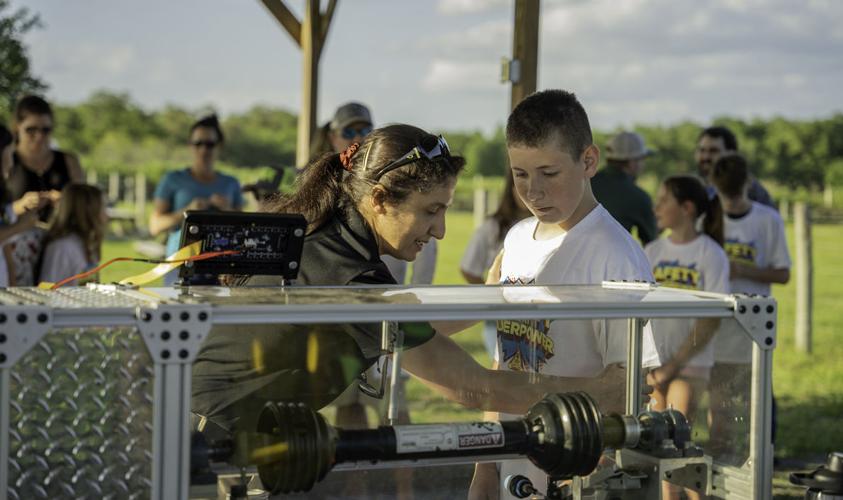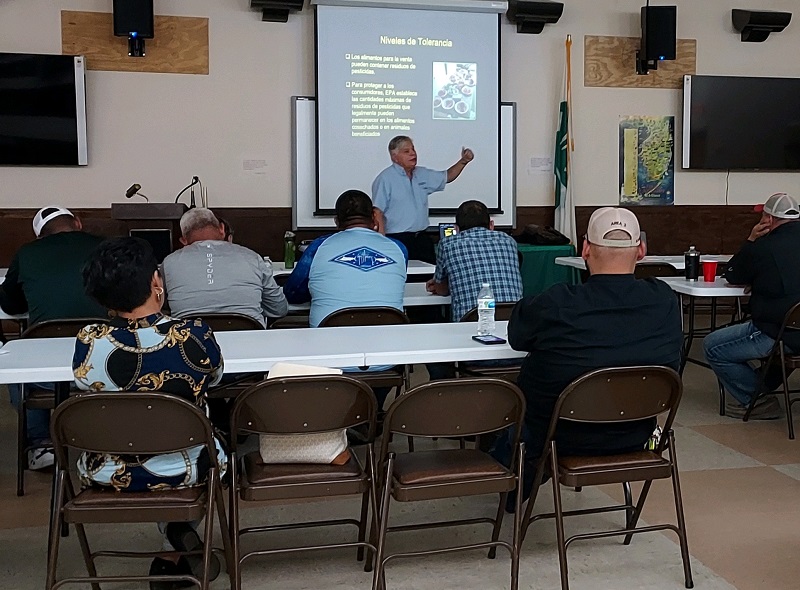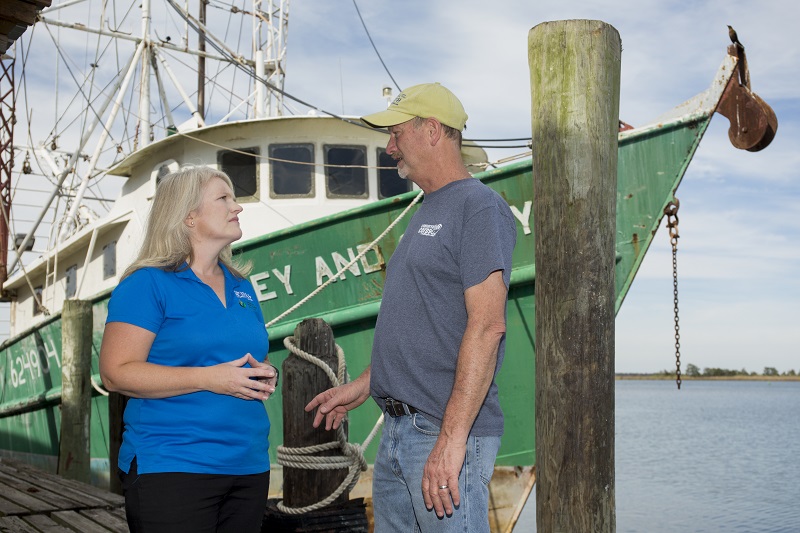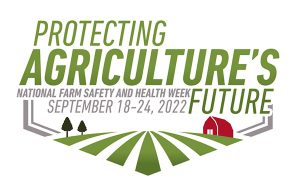September 18-24 is National Farm Safety and Health Week.
Agriculture is one of our nation’s most important industries. It’s also one of the most hazardous. In 2020, 511 people died on the job while working in agriculture, forestry and commercial fishing, and 18,750 non-fatal injuries were reported, according to the Bureau of Labor Statistics.
Farming is hard work, and the people who put food on our tables need a safe work environment. That’s why UF/IFAS Extension educates agricultural workers about how to stay safe and healthy in the field.

When Serap Gorucu is wearing her lab coat, she studies risk analysis. The assistant professor in UF’s Department of Agricultural and Biological Engineering has authored many scholarly journal articles about the causes of injuries and fatalities in agriculture. But when she puts on her blue jeans and her UF/IFAS Extension polo shirt, she talks with people about how they can avoid accidents on the farm. She was recently at Citrus County’s Progressive Agriculture Safety event, demonstrating a device that (safely) simulates what a tractor’s power take-off can do if it catches your shirt sleeve or jewelry. At 9 to 16 revolutions per second, it’s virtually impossible to snatch your arm away in time. It’s one of the education tools she uses to reach youth in agriculture.
Cesar Asuaje teaches agricultural safety to farm workers in Palm Beach County. Most of the big farms and ranches in the area hold safety trainings at least once a year, usually in May when harvest season begins. He sees familiar faces show up year after year, but every once in a while, someone’s missing because they’ve been killed in a farm-related accident. Tractor rollovers are the most common cause of fatalities, followed by transportation accidents on the way to and from the field. Farm workers in Florida also suffer, usually non-lethally, from heat stress and dehydration. Cesar works with many of the Spanish-speaking employees, who often comprise 60 or more percent of the workforce. Because some of his audiences face literacy challenges, he uses visuals to communicate equipment safety, avoiding back injuries, and knowing the signs of heat stroke. During COVID-19, he converted his face-to-face training into video courses, which are now available, in Spanish and English, on Extension Online Learning.

Stress is also an occupational hazard in agriculture. Crop prices, farm costs, and weather are forces outside the farmer’s control that can take a toll on their mental health. If left untreated, stress can lead to hypertension, substance abuse, domestic violence, even suicide. Traci Irani and Angie Lindsey are shedding light on a topic a lot of us don’t like to talk about but need to. As Extension faculty members with the Southeastern Coastal Center for Agricultural Health and Safety, they’re using lessons learned from their work with disaster relief to help farmers, farm workers, and rural residents identify the mental health issues they face and discuss ways to cope with stress.

These faculty are joined by many others who provide workplace safety training for all Floridians. Florida’s agriculture can only thrive and bring in new generations of farmers if it’s a safe and healthy way to make a living. Throughout the state, UF/IFAS Extension faculty are out there in the fields and classrooms, bringing the tools workers need to stay safe on the job all year round.
For more, visit SolutionsForYourLife.
 0
0

